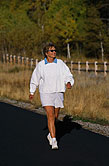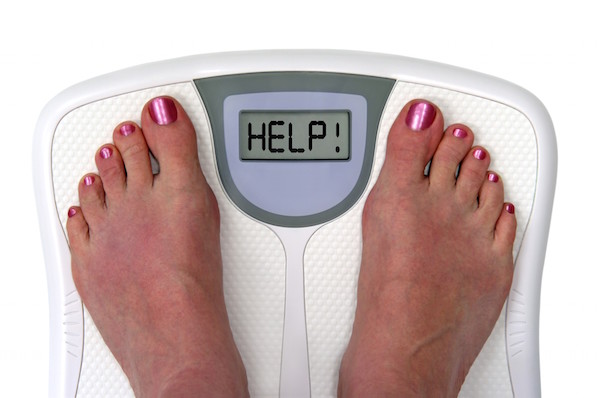
TUESDAY, March 23 (HealthDay News) — An hour a day of moderate-intensity exercise will prevent weight gain in normal-weight women, middle age and older, according to a new study.
“‘Moderate intensity’ means brisk walking, casual bicycling, ballroom dancing, playing with the grandchildren,” said Dr. I-Min Lee, lead author of the study, which is published in the March 24/31 issue of the Journal of the American Medical Association.
“It’s nothing special,” added Lee, who is an associate epidemiologist with the division of preventive medicine at Brigham and Women’s Hospital and an associate professor of medicine at Harvard Medical School in Boston. “For someone who wants to eat normally, this is enough.”
On the other hand, those who engage in something more vigorous — like jogging, playing tennis or swimming laps — can get away with 30 minutes a day and no weight gain as they age.
The findings did not hold true, however, for overweight and obese women.
In the current age of fast food and big-screen TVs, about two-thirds of American adults are overweight or obese. Even among the healthiest, weight tends to creep up with age.
“We know that being overweight and obese adversely affects health,” Lee said.
Despite the dozens and dozens of commercial and even medically supervised weight-loss programs that are available, people who lose weight still tend to gain it back.
“We thought, ‘Wouldn’t it be better to prevent the weight gain in the first place so you don’t have to worry about sustaining the weight loss after that?'” Lee said.
And though tons of research has addressed ways to help overweight and obese people lose weight, much less research has focused on how to prevent weight gain over time in normal-weight individuals.
U.S. government recommendations suggest exercising 30 minutes a day to lower the risk of chronic disease.
To find out what levels of physical activity are needed to successfully maintain weight, Lee and her colleagues followed 34,079 women, who averaged 54 years old at the start of the study, for 13 years. The women reported their physical activity and had their weight checked every three years.
Physical activity levels were divided into three categories: 420 minutes a week (60 minutes a day); 150 to 420 minutes a week (about 20 to 60 minutes daily); and less than 150 minutes a week.
Overall, the participants gained an average of 2.6 kilograms (5.7 pounds) over the 13 years, considered average for the general population.
Women in the two lesser categories of exercise gained more weight than those who exercised 60 minutes a day, the study found. There was no difference in weight gain between the two less active groups.
“The successful weight maintainers kept a normal BMI [body mass index] over a long period of time,” Lee said, referring to an indicator of body fatness calculated from a person’s weight and height. “They gained less than five pounds, and they constantly expended 60 minutes a day in moderate level activity.”
Lee stressed that she didn’t want people to feel discouraged if they weren’t making the 60 minutes a day. “It’s very clear that even the lower levels of physical activity reduce the risk of important chronic diseases, including cardiovascular disease and certain types of cancer,” she said. “There are still some health benefits.”
Eugenio Lopez, a registered nurse with the Texas A&M Health Science Center Coastal Bend Health Education Center in Corpus Christi, said the study “showed that you do need physical activity just to maintain, let alone lose, actual pounds. … but they started off with individuals who were already at an ideal body mass index, which is absolutely irrelevant here in South Texas.”
“It was interesting that it took 60 minutes just to maintain that particular body mass index,” Lopez said. “I would have really been interested to see what it would take for somebody already above their ideal BMI to actually lose weight — how much physical activity would actually be required.”
Dr. Suzanne Steinbaum, director of women and heart disease at Lenox Hill Hospital in New York City, said that, as people age, “it’s clearly harder to keep the same weight so you have the option of exercising every day for an hour, really understanding that calorie restriction [might] need to be a huge part of your lifestyle because your natural tendency is to gain weight.”
The bottom line? “Everyone needs to exercise as much as they can,” Steinbaum said.
More information
The U.S. Centers for Disease Control and Prevention has more on healthy weight.

